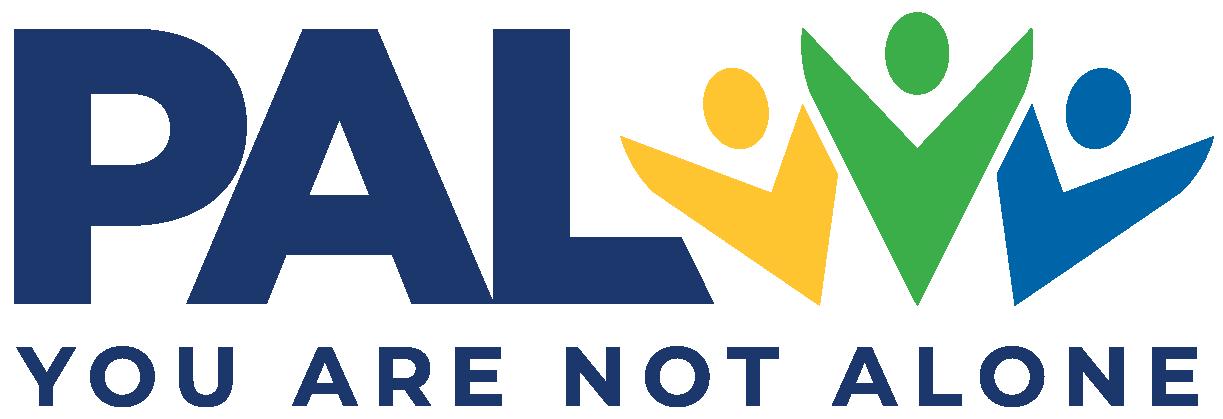
What do we do when we feel powerless towards other people, places, and things? What do we do when the unknown takes over our thoughts?
Let’s first talk about what powerlessness is. It is a feeling or idea that we lack control of what is happening in our life. When talking about addiction, we feel out of control over someone else’s problem. We are put in a place of instability due to someone else’s actions and choices. Powerlessness is almost like we can no longer feel the ground underneath us. When we cannot make sense out of our loved one’s addiction, we feel unstable, and our body can spiral out of control – physically and emotionally – and move into protection mode.
Did you know our bodies are created to protect themselves against a perceived threat? It is a natural physiological process, doing what it is created to do. Here is how it plays out. Our brain receives a queue, either from the environment (an event outside of ourselves) or from our thoughts. Our brain decides if this queue is a threat or not. If it perceives it as a threat our bodies become alerted, and a sensation is felt in our bodies. We call that an emotion. Believe it or not, most of us are unaware of this sensation because our bodies are on warp speed rushing to make sense of what we are experiencing. These sensations quickly travel via our nervous system to our prefrontal cortex which is what we call our executive functioning. This is where we process all sorts of information. Our brain begins to process or reason out what is going on and then translates these sensations into words which we call feelings. Happiness, sadness, fear, anger, and the list goes on.
Enter defense mechanisms. This is a concept created by Sigmund Freud, the father of psychoanalysis in the early 19 century. He noticed common protection mechanisms around stress and difficult feelings or emotions.
When our executive function processes painful emotions and feelings we tap into these mechanisms. One common defense mechanism is to catastrophize. Our brains and bodies are trying to find a way to regain a sense of control of the unknown. Our brain is trying to protect us by essentially beating us to the punch. We immediately jump to the worst possible conclusion and even create a false narrative that is exaggerated and untrue. We begin to predict the future. Catastrophizing does not help; it makes us feel worse and feel out of control. We obsess and over think which steals our peace. Our brains feed the monster.
Climbing out of this spiraling behavior of fear of the unknown and catastrophic thinking requires both in-the-moment grounding techniques and big-picture reframing. Focusing on the reality of the situation and not the story you are telling yourself in your head. This can help begin decreasing the intensity of our emotions and bring peace.
Here are some tips:
- Practice self-awareness. Slow down. Think about what you are thinking and practice “catching yourself” in the act of catastrophizing. Instead of viewing the situation as a prediction of the future simply say to yourself “this is a catastrophic thought, I’ve had them before, and I know they are not good for me.”
- Follow the catastrophic false narrative and see when they land. Separate what the brain created on its own and not what is actually happening. Realize these thoughts are possibilities not probabilities.
- Practice grounding techniques. Grounding helps you get out of the emotional brain and calm your nervous system. Here is an easy technique that can interrupt the cycle of catastrophizing and bring you back to reality:
- Name five things you can see
- Four things you can touch
- Three things you can hear
- Two things you can smell
- One thing you can taste.
- Focus on what you can control. When you become aware that you are catastrophizing, force yourself to realize that you do not have control over the future. Let go of what you cannot control – let go of the narrative of the unknown.
Lastly, find a network of people who can support you and help keep you accountable. Find like-minded people such as those found in PAL support groups. Find people that you can lean on and help you climb out of narratives that are destructive. Find someone that can tell you the truth in love. Sometimes we must hear things over and over again until finally our brain relaxes, and we can take in new information and make a shift towards letting go of what we cannot control.
It’s okay to ask for help.
Brenda Cochran, LCSW
Brenda is in full-time private practice, launching Zoe Integrated Health concentrating on a whole-person trauma-focused perspective.
